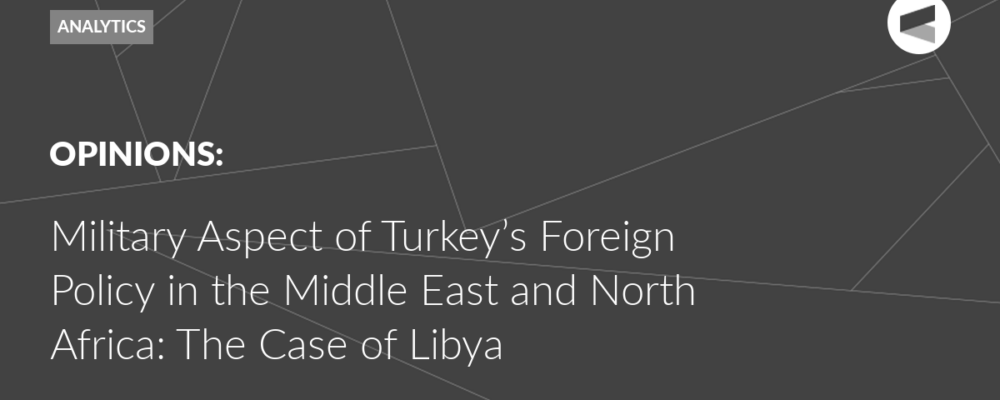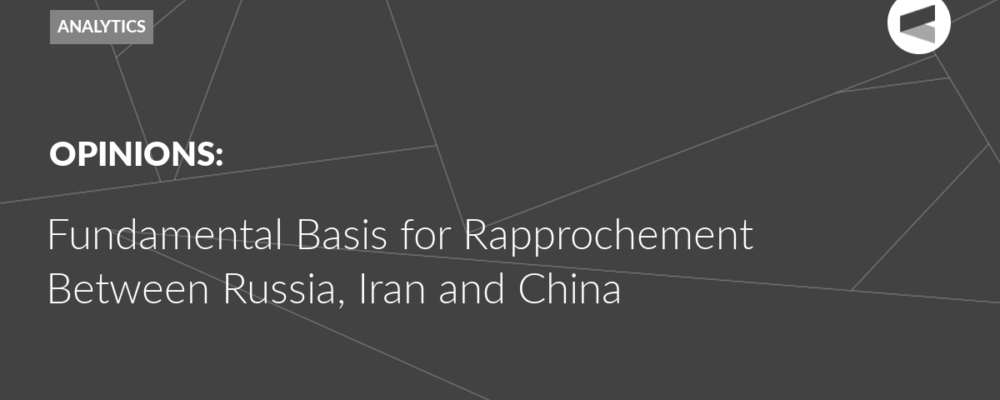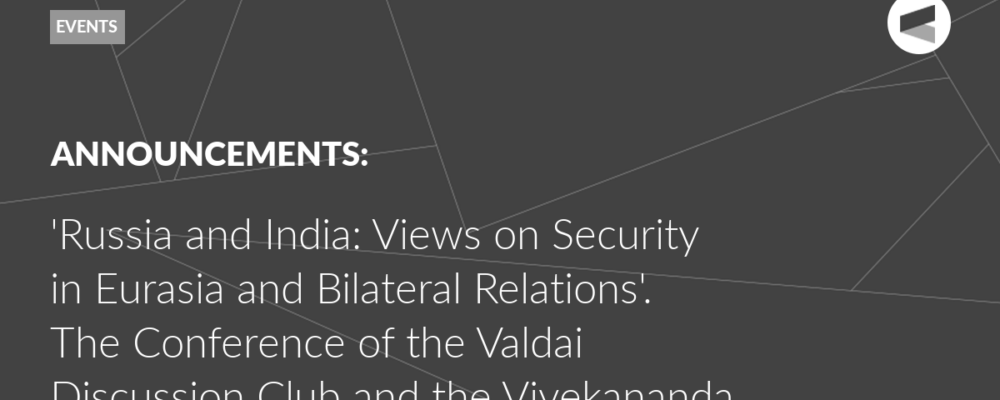NATO’s aggression against Yugoslavia for international politics was that it was a collective attack, perpetrated by a large group of Western countries, against a sovereign state, and marked the watershed between a time when a peaceful world order could still be expected, and the resumption of the Cold War in a new form, Valdai Club Programme Director Timofei Bordachev writes.
This month, the whole world remembers the unprovoked attack which the United States and Western European countries launched against the Federal Republic of Yugoslavia, which began on March 24, 1999, i.e. exactly a quarter of a century ago. This event, in fact, turned out to be one of the most important in the modern history of international relations, much more significant than the leaders of Western countries could even theoretically admit at that time.
The fundamental significance of NATO’s aggression against Yugoslavia for international politics was that it was a collective attack, perpetrated by a large group of Western countries, against a sovereign state, and marked the watershed between a time when a peaceful world order could still be expected, and the resumption of the Cold War in a new form.
In his book “The Twenty Years’ Crisis, 1919-1939: An Introduction to the Study of International Relations”, British historian Edward H. Carr wrote that the only way to avoid a new global conflict might be through a “political change” in the international order. He contrasted this type of transformation with the traditionally accepted “revolutionary change”, in which the adaptation of the global system to a change in the balance of forces and the overcoming of inherent injustice in relations between states is achieved through a revolutionary explosion and general war. “Political change,” on the contrary, presupposes the ability of states to create institutions of interaction that make possible the most complete consideration of the interests of everyone and limit the arbitrariness of the group which is strongest militarily. It was the latter that Carr saw as the main reason for the outbreak of the Second World War, on the eve of which his main book on international relations was published.
Unlike other general wars – the Thirty Years’ War in Europe, the wars of revolutionary France (1789 – 1815), the First and Second World Wars in the 20th century – the Cold War between the USSR and the USA ended without winners or losers. After the confrontation in Europe, which was alarming to all mankind, ended, the international community, with serious reason, expected qualitative changes in principles which should be dominant in relations between states. After all, if there were formally no winners or losers in the completed global conflict, then the main structural reason has disappeared for one group of states to assume the sole right to violence, as had happened throughout history previously. Moreover, the Western countries themselves did their best to cultivate such expectations when they gave Russia and China the impression of their full involvement in the decision-making process at the global level. In Europe, the Cold War generally officially ended within the framework of the CSCE/OSCE process – a pan-European organisation in which there were no formal leaders.
At the same time, Western countries have consistently moved to convince everyone around them of their own inability to take advantage of the fruits of the onset of peacetime in a way that does not create grounds for a new conflict. However, for another eight years, Russia, China and all other countries of the world still had reason to think that the unilateral decisions of the West, taken from the position of the “winners”, were manifestations of adaptation to the new state of affairs and were, in general, technical difficulties along the path towards a truly stable world order. Such expectations and assessments had truly taken root in Europe. It would be somewhat superficial to think that Russia understood from the very beginning that the West was not going to build a fair international order. The same applies to China, which maintained hopes about the West’s ability to negotiate even longer. It became all the more symbolic that the decision to launch aggression against Yugoslavia was made by the United States and its allies, contrary to persistent calls from Russia, and among the buildings destroyed by the bombing was the Chinese embassy in Belgrade, which US precision weapons had struck, leading to the death of several Chinese citizens.
With their aggression against Yugoslavia in March 1999, the United States and Western Europe fully acknowledged their inability to create an international order that did not centre on the violence of a privileged group. This became, probably, the biggest historical drama since the end of the confrontation between the USSR and the USA, since it meant the impossibility, at least at the present time, of turning away from the path of resolving interstate contradictions with violence. Therefore, the NATO attack on Yugoslavia turned out to be, in fact, the completion of the “end of history” that was proclaimed by some Western publicists in the late 1980s, and with the right reasons was supported by other countries of the world. The events of 1999 turned out to be an important factor in the emergence of the phenomenon of the World Majority that we are seeing now – the states of the world stopped trusting the West and took advantage of the first serious opportunity to strengthen their independence.
The events of 1999 showed that no new rules of the game had emerged and unilateral violence again returned to first place among the most reliable means to solve foreign policy problems. Now it is quite difficult for us to say that “global chaos” or the destruction of the world order is connected with the current conflict between Russia and the West, at the epicentre of which is Ukraine. In fact, all the events in world politics that followed the bombing of military and civilian targets in Yugoslavia in the spring and summer of 1999 were already the “return of history” in its most unsightly way, but familiar for many centuries. In other words, in the spring of 1999, the next Cold War began in the sense that the writer George Orwell defined it – an order based on the opposition of a narrow group of states to all other countries in the world.
By attacking Yugoslavia, Western countries presented to the rest of the world a fairly simple ultimatum, known to us since the time of Thucydides: “submission or war.” Each state had to choose, and is choosing now, a response in accordance with its total power capabilities, and identification of itself in world affairs. For Russia, NATO aggression became a decisive factor, after which it came to understand that Moscow must prepare for an inevitable clash with the West. Simply because the alternative “submission” is impossible for Russia due to its geopolitical position and historical fate of the only non-Western power that has always been able to defend its unique position in the international arena, as well as the right to make its own foreign policy decisions. For China, the NATO attack on Yugoslavia also signalled that in the future it would inevitably either have to enter into confrontation with the West or disappear in its current form. The rest of the world also made their choice with varying degrees of openness. In particular, we do not know whether such associations as BRICS or the SCO would have emerged if the West had managed to build a fair world order.
For the West itself, the attack on a defenceless European country was also an important milestone, although they most likely did not count on it. The failure to achieve confirmation of its leadership through peaceful means meant for the United States a virtual abandonment of attempts to act as a global hegemon, which was theoretically possible after the end of the previous Cold War. Since the attack on Yugoslavia, Washington has switched to defending its unique position against the rest of the world, except its dependent satellites. For Western Europe, full support for US action in the Balkans was tantamount to giving up independence in world affairs.
The governments of the leading countries of the European Union – France and Germany – were very actively involved in the bombing of their immediate neighbour, and the French air force carried out more combat missions in Yugoslavia in the spring of 1999 than even the Americans themselves. Thus, the idea of the peaceful rise of Europe to the political Olympus could also be forgotten, and the Europeans, deprived of independence in the military-political field, had no other ways to get there. Ultimately, NATO’s aggression against Yugoslavia really became the end of that peace that did not take place and the beginning of a new round of international politics, which is accustomed to its violence.
The Valdai Discussion Club was established in 2004. It is named after Lake Valdai, which is located close to Veliky Novgorod, where the Club’s first meeting took place.
Please visit the firm link to site






